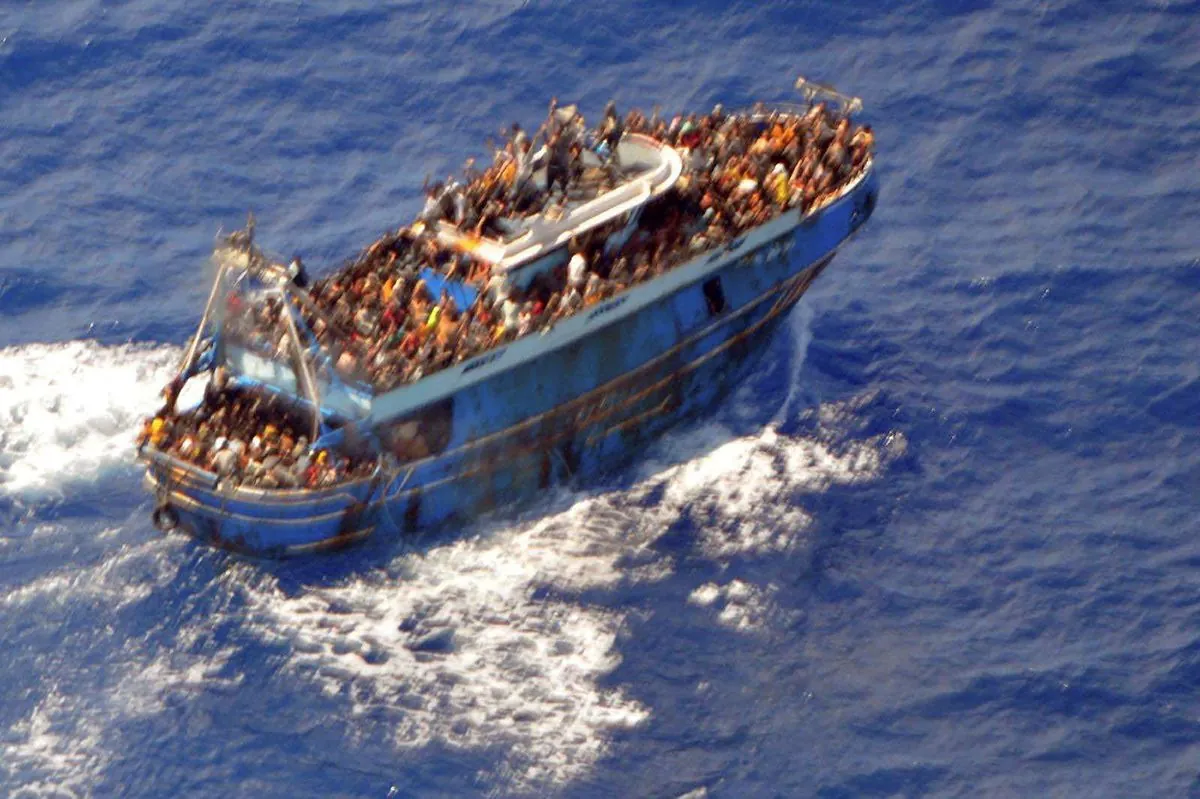Greek maritime authorities have conducted a series of rescue operations, saving approximately 150 migrants attempting to reach the country by sea within a 24-hour period ending on August 20, 2024. The operations highlight the ongoing challenges faced by Greece in managing irregular migration across the Mediterranean.
In a significant rescue effort, the Greek Coast Guard responded to a distress call from a vessel off the coast of Lesbos, the third-largest Greek island located in the northeastern Aegean Sea. The boat, which was dangerously overcrowded, carried 115 individuals, including 67 men, 27 women, and 21 children. Following their rescue, the migrants were transported to a reception facility on Lesbos. The vessel, unable to remain afloat after the evacuation, subsequently sank.
This incident represents one of the largest single groups of migrants to reach Lesbos from Turkey in recent months. The proximity of Lesbos to the Turkish coastline has historically made it a common target for people smugglers. However, authorities have noted a shift in smuggling routes, with an increase in longer journeys from Libya to Crete and through the central Aegean Sea, where coastal patrols are less frequent.
In a separate operation, Greek authorities rescued 32 individuals, comprising 25 men and seven boys, from a vessel in distress approximately 35 miles south of Crete. The migrants reported spending three days crossing the Mediterranean after departing from eastern Libya. Two individuals from this group were apprehended on suspicion of involvement in organizing the illegal crossing.
The United Nations High Commissioner for Refugees (UNHCR) reports that nearly 30,000 migrants have entered Greece illegally since the beginning of 2024. This figure represents a slight decrease compared to the post-pandemic surge observed in 2023. The majority of these individuals are reported to be nationals of Afghanistan, Syria, or Egypt, countries that have experienced significant refugee outflows in recent years.
"The vessel was located in distress off the eastern Aegean Sea island of Lesbos. Three patrol vessels picked up 67 men, 27 women and 21 children, who were taken to a migrant reception center on Lesbos."
It's worth noting that Greece's migrant arrival numbers are comparable to those of Italy and Spain, underscoring the shared challenges faced by Mediterranean countries in managing irregular migration. The Greek Coast Guard, responsible for maritime law enforcement and search and rescue operations, continues to play a crucial role in responding to these situations.
The ongoing migrant crisis, which began in 2015, has placed significant pressure on Greece's resources and infrastructure. While the COVID-19 pandemic temporarily disrupted migration patterns between 2020 and 2022, the recent figures indicate a return to pre-pandemic levels of movement.
As Greece and other European Union member states grapple with these challenges, international cooperation and support from agencies such as Frontex, the European Border and Coast Guard Agency, remain critical. The situation also highlights the need for addressing the root causes of migration in countries of origin and the importance of combating human trafficking networks that exploit vulnerable individuals seeking safety and better opportunities.
